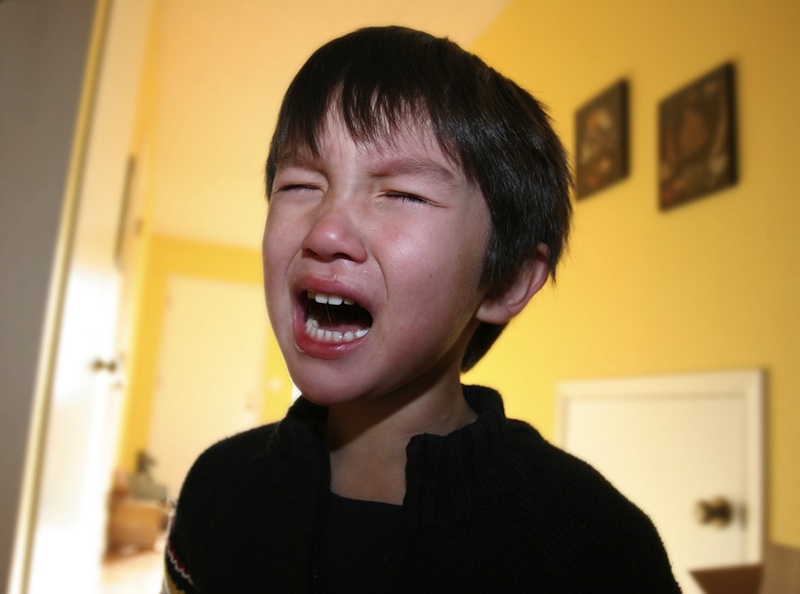Spanking, Hitting Kids in Public Surprisingly Common, Study Finds

Get the world’s most fascinating discoveries delivered straight to your inbox.
You are now subscribed
Your newsletter sign-up was successful
Want to add more newsletters?

Delivered Daily
Daily Newsletter
Sign up for the latest discoveries, groundbreaking research and fascinating breakthroughs that impact you and the wider world direct to your inbox.

Once a week
Life's Little Mysteries
Feed your curiosity with an exclusive mystery every week, solved with science and delivered direct to your inbox before it's seen anywhere else.

Once a week
How It Works
Sign up to our free science & technology newsletter for your weekly fix of fascinating articles, quick quizzes, amazing images, and more

Delivered daily
Space.com Newsletter
Breaking space news, the latest updates on rocket launches, skywatching events and more!

Once a month
Watch This Space
Sign up to our monthly entertainment newsletter to keep up with all our coverage of the latest sci-fi and space movies, tv shows, games and books.

Once a week
Night Sky This Week
Discover this week's must-see night sky events, moon phases, and stunning astrophotos. Sign up for our skywatching newsletter and explore the universe with us!
Join the club
Get full access to premium articles, exclusive features and a growing list of member rewards.
Parents get physical with unruly children far more in public than they do when they know psychologists or other researchers are looking, a new study finds.
In an experiment that involved surreptitiously watching parents discipline their kids in public places such as restaurants, researchers found that in 23 percent of cases, mom or dad resorted to "negative touch" to get their child to comply. Negative touch can include anything from restraining and spanking to pinching and hitting.
The findings suggest that most social science research in parenting misses out on these sorts of incidents, study researcher Kathy Stansbury, a professor of human development and family studies at Michigan State University, said in a statement.
"I have also seen hundreds of kids and their parents in a lab setting, and never once witnessed any of this behavior," Stansbury said.
Spanking debate
There is plenty of controversy in parenting circles about whether physical discipline, especially spanking, is ever okay. Stansbury and her colleagues didn't delve into that debate, which mostly focuses on the long-term effects of spanking. Instead, they were interested in the immediate effects of touch in discipline.
Previous studies have found that positive touch, such as tickles, hugs, pats and gentle guidance are associated with happy outcomes (and good behavior) in young children. Negative touch, including spanking and hitting, has been linked to more aggression in some kids.
Get the world’s most fascinating discoveries delivered straight to your inbox.
But people aren't always willing to admit they've spanked or otherwise been physically rough with their child. So Stansbury and her colleagues set themselves up in restaurants, shopping malls, parks and other public spots to watch parents and kids ages 3 to 5 interact naturally. The study subjects never knew they were being observed.
The researchers watched 106 public caregiver-child interactions that involved a child refusing to comply with a request and the caregiver having to correct the child. In most cases, the caregivers appeared to be the child's parents, but because the researchers never approached the families, they can't be sure.
Discipline methods
Of the 106 episodes, 24 (or 23 percent) involved negative touch, while another 35 (or 33 percent) involved positive touch. Finally, in 38 percent of cases, the caregiver did not touch the child at all.
Male caregivers used touch equally for both boys and girls, but female caregivers were more likely to use negative touch with boys and positive touch with girls. Contrary to stereotypes of harsh disciplinarian fathers, when male caregivers did correct their children by touch, it was more likely to be positive rather than negative.
Negative touch was associated with a negative reaction from female children, and researchers saw no evidence that negative touch was more likely to get a child to obey than other methods. When kids were happier, they found, they were more likely to comply. And negative touch did not make kids happier. [10 Scientific Tips for Raising Happy Kids]
"If your child is upset and not minding you and you want to discipline them, I would use a positive, gentle touch," Stansbury said. "Our data found that negative touch didn't work."
The researchers detailed their findings in the journal Behavior and Social Issues.
Follow Stephanie Pappas on Twitter @sipappas or LiveScience @livescience. We're also on Facebook & Google+.

Stephanie Pappas is a contributing writer for Live Science, covering topics ranging from geoscience to archaeology to the human brain and behavior. She was previously a senior writer for Live Science but is now a freelancer based in Denver, Colorado, and regularly contributes to Scientific American and The Monitor, the monthly magazine of the American Psychological Association. Stephanie received a bachelor's degree in psychology from the University of South Carolina and a graduate certificate in science communication from the University of California, Santa Cruz.
 Live Science Plus
Live Science Plus










